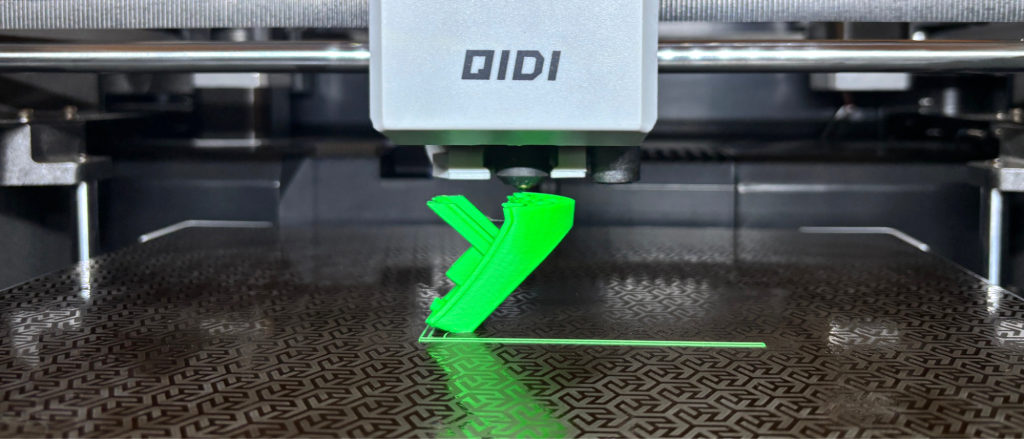The build plate represents a crucial element in the realm of 3D printing, significantly influencing the quality of prints. A single smudge can lead to failed prints, underscoring the importance of a proper build surface. While many users overlook the stock build plates that come with their printers, these components can be pivotal, especially if they sustain damage over time.
Key Considerations for Build Plates
Over the years, 3D printing technology has advanced, ushering in improved build plate options. Most modern 3D printers now come equipped with textured PEI flex plates, enhancing usability for users. Nevertheless, if your printer’s stock surface becomes worn or scratched, exploring aftermarket options may be beneficial. The availability of various build plates—ranging from flexible to textured and dual-sided—provides users with multiple choices tailored to their specific needs.
Top Aftermarket Build Plates for 3D Printers
Here is a look at some of the best third-party build surfaces currently available:
| Build Plate Name | Description | Price Range | Where to Buy |
|---|---|---|---|
| Tyson Flex Plate System | Universal build plate that works with all filaments, offering excellent adhesion. | $50 – $120 | Tyson Build Plates |
| BIQU CryoGrip Pro “Glacier” | High adhesion surface for all materials under 300°C nozzle temperature. | $14 – $43 | BIQU, Amazon |
| BIQU CryoGrip Pro “Frostbite” | Superior holding capacity with a coarse texture, ideal for PETG and ABS. | $14 – $43 | BIQU, Amazon |
| SliceWorx Dipped PEI | Coated surface for enhanced grip, best suited for lower temperature materials. | $20 – $70 | SliceWorx |
| WhamBam PEI | Popular and versatile plate that fits virtually every printer. | $7 – $200 | WhamBam |
| Holographic Build Plates | Leaves a unique sparkle effect on prints, designed primarily for PLA. | $10 – $28 | Amazon |
| Custom Textured PEI Plate | Personalized plates that feature custom designs or logos. | $49 and up | Ember Prototypes |
Detailed Review of Selected Build Plates
1. Tyson Flex Plate System
This innovative build plate is made from tempered steel and a proprietary coating that ensures strong adhesion for various filament types. It is customizable and very durable, able to handle temperatures from 50 to 230°C.
2. BIQU CryoGrip Pro “Glacier”
The Glacier plate is designed to hold prints with minimal heat due to its innovative oleophobic polymer coating. It holds well even at room temperature, perfect for materials up to 300°C. The surface is scratch resistant but removing prints may require some effort.
3. BIQU CryoGrip Pro “Frostbite”
This cold plate offers excellent grip thanks to its coarse texture, retaining prints at low temperatures. It excels with materials like PETG and requires cooling before prints can be removed effectively.
4. SliceWorx Dipped PEI
With a unique coated surface, this plate significantly enhances adhesion specifically for PLA and PETG filaments. Users must ensure prints are cooled before flexing to release successfully.
5. WhamBam PEI
A flexible and high-quality replacement plate, it is available in a wide range of sizes. This PEI flex plate is known for its consistent performance and suitability for various filament types.
6. Holographic Build Plates
Designed to create shimmering effects on print surfaces, these plates work well with PLA. However, they require careful handling to avoid scratches and degradation of the holographic surface.
7. Custom Textured PEI Plate
These plates offer personalization options, allowing users to imprint their logos or artwork onto their prints. It operates similarly to standard textured PEI plates but with unique custom designs.
Testing Methodology for Build Plates
Each build plate undergoes rigorous testing using several different printers, ensuring they deliver optimal performance. The testing process involves printing multiple models, with specific focus on adhesion quality and ease of removal.
FAQs
What surface is best for printing? Maintaining a clean plate is essential for successful prints. Regular cleaning with soapy water can prevent adhesion issues.
What’s the best build plate for PLA? Textured PEI surfaces generally provide the best all-around compatibility for PLA.
What’s best for PETG? A well-maintained PEI surface combined with a bit of glue stick offers excellent performance with PETG.
What’s the best choice for ABS? The Tyson Flex plate is highly recommended for its capability to support high-temperature filaments effectively.

